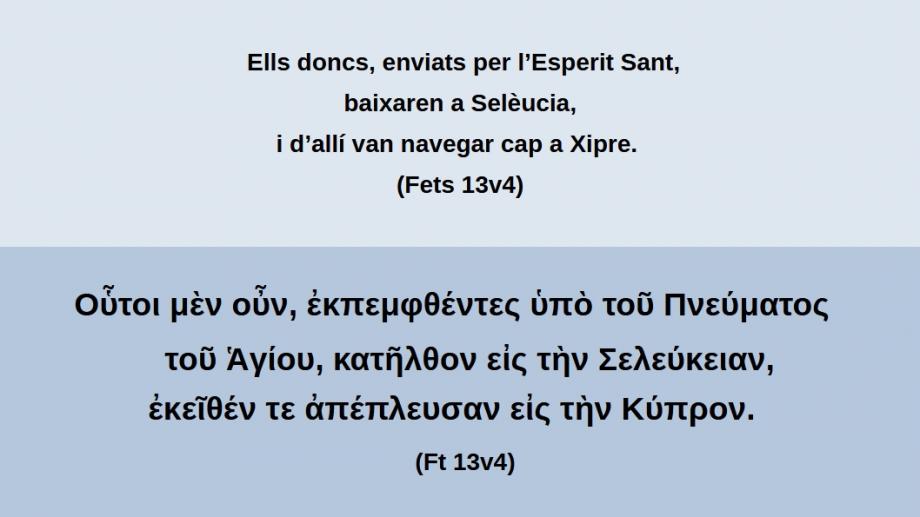Fets 13v4 Ells doncs, enviats per l’Esperit Sant, baixaren a Selèucia, i d’allí van navegar cap a Xipre. Οὗτοι μὲν οὖν, ἐκπεμφθέντες ὑπὸ τοῦ Πνεύματος τοῦ Ἁγίου, κατῆλθον εἰς τὴν Σελεύκειαν, ἐκεῖθέν τε ἀπέπλευσαν εἰς τὴν Κύπρον. (Ft 13v4)
Data:
2026-03-04, dimecres
Comentari:
Fets 13v4 Ells doncs, enviats per l’Esperit Sant, baixaren a Selèucia, i d’allí van navegar cap a Xipre.Οὗτοι μὲν οὖν, ἐκπεμφθέντες ὑπὸ τοῦ Πνεύματος τοῦ Ἁγίου, κατῆλθον εἰς τὴν Σελεύκειαν, ἐκεῖθέν τε ἀπέπλευσαν εἰς τὴν Κύπρον. (Ft 13v4)
